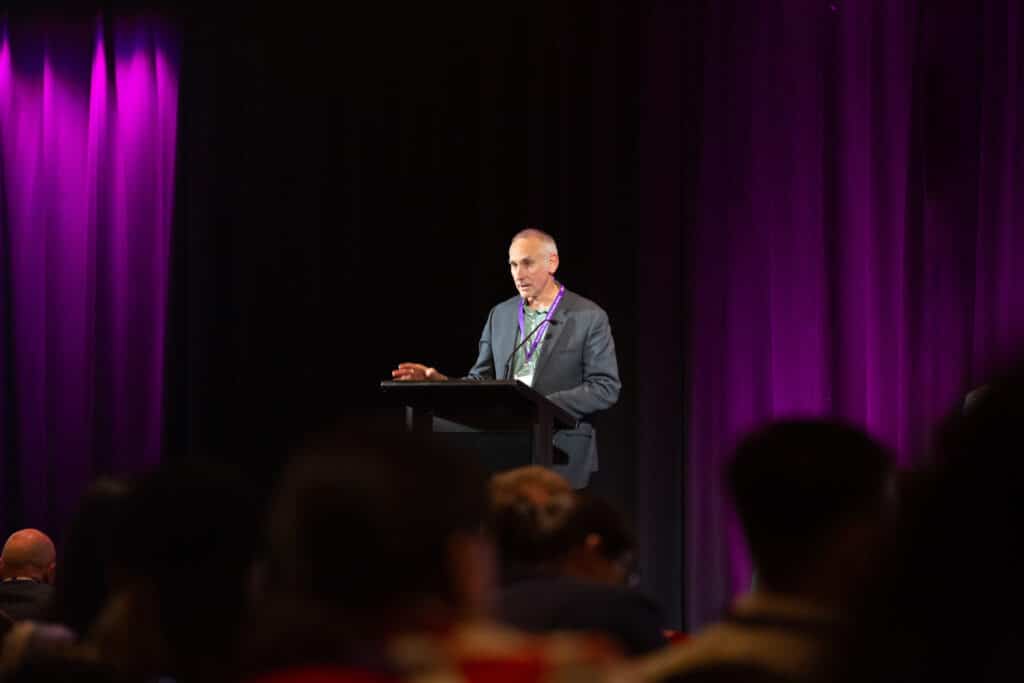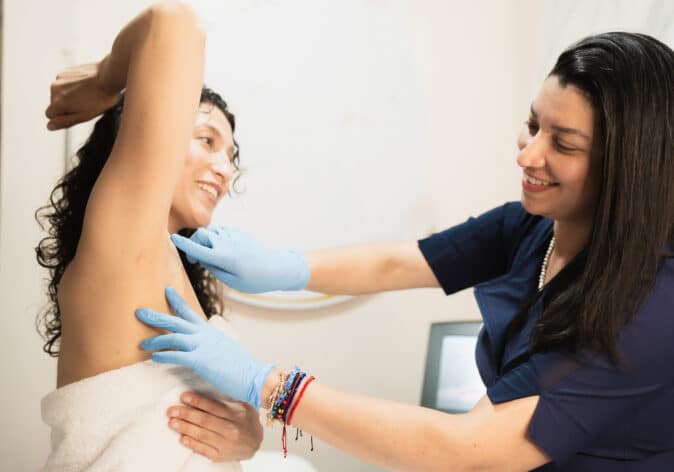Dr Cristin Print is a Professor of Pathology and Molecular Medicine in Auckland, New Zealand. Dr Print has an interest in bioinformatics in breast cancer, which involves taking large amounts of data and distilling clinically useful information from that data.
We spoke to him about the opportunities for research in this area, and how it can be used to generate better care for future patients.
“For people like me, this has become really exciting recently as we move into this precision medicine world, where for every patient who has a molecular analysis on their cancer in order to determine therapy, that’s also an opportunity for research to use that information to generate better care for future patients.”
“As we’re moving into this precision medicine world, where so many new therapies are becoming available, and a molecular analysis of a patient’s tumor helps determine whether they’re going to respond to that therapy or whether they’re just going to get toxicity and cost, then bioinformatics is playing a role clinically in helping stratify the right therapy to the right patient.”
“But it’s also playing a role with things like liquid biopsies for identifying small amounts of disease after treatment or relapse. It plays a big role in identifying whether patients are likely to respond to some of the newer immunotherapies.”
What does the future look like for bioinformatics in the breast cancer space?
“I personally think we are starting to ask more and more complex questions. When I’m analysing genomic data from a person with breast cancer, then their tumor and their inherited germline, there’s 99 percent of the information that I still don’t really know what it means.”
“So, research is really important and the idea of transdisciplinary teams with computational people, clinical people, lab people, working together to investigate increasingly complex aspects of breast cancer.”
“I think that’s the future in identifying new therapies, new diagnostics. And you know what, I think it’s actually a dual edged sword. It’s very sad that there’s so little we understand about breast cancer still, after all these years research. But that brings me hope, because that residual gap that we don’t understand, if we can find the jigsaw puzzle pieces and start to fit them into the puzzle, you imagine what we can do in future years.”
“One of the big challenges is that whole immunotherapy area isn’t it and can bioinformatics help to expand immune checkpoint inhibitors to other groups of breast cancer patients, apart from triple negative breast cancer patients, for example.”
Listen to the Podcast
Dr Cristin Print is a Professor of Pathology and Molecular Medicine in Auckland, New Zealand. We spoke to him about bioinformatics in breast cancer, and how it can be used to generate better care for future patients.
What are your hopes for the future of breast cancer research?
“One of the big things I hope in breast cancer research is that we can discover how to use immunotherapies in a broader set of patients who have breast cancer. I hope that we can discover a lot more about what we call pharmacogenomics, understanding how genes can influence how drugs work, to identify therapies that may have less side effects from individual patients.”
“I know when I talk to people with cancer, often the main thing they bring up with me is the terrible side effects they’ve had from their therapies. So, the question we have is can we do a little bit more to identify patients, side effects and therapies, and triangulate between them?”
Support Us
Help us to change lives through breast cancer clinical trials research



